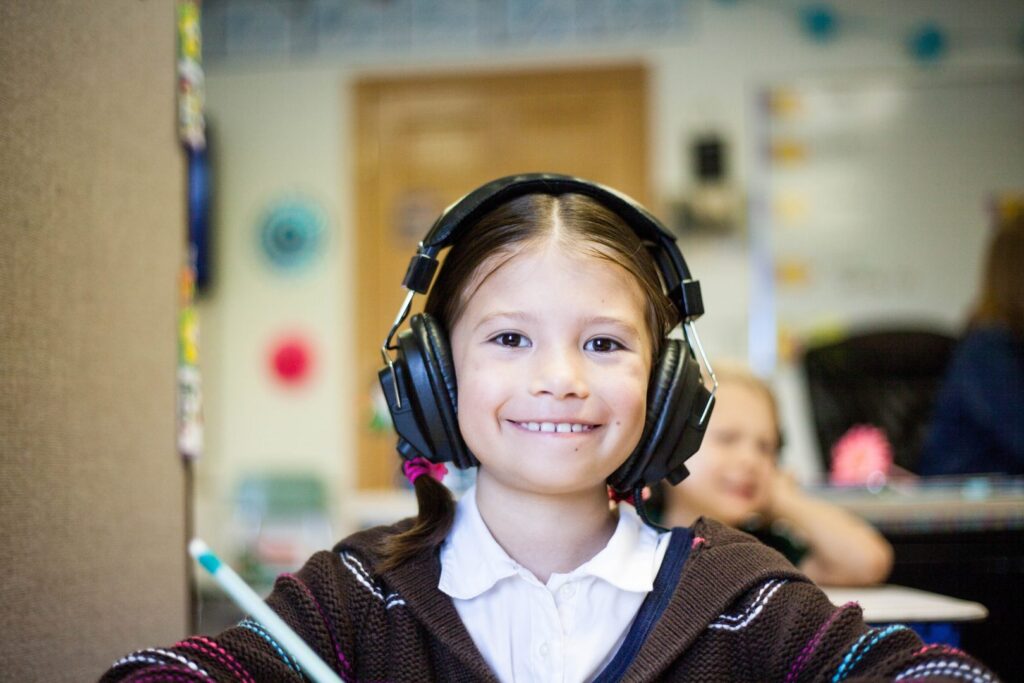Children’s education is fundamental for their development, beginning from the earliest childhood. But living in a constantly increasing digital era demands our children be digitally educated.
You can’t just give your child the newest smartphone model only to show off in front of their friends. Due to this, children need proper digital education from early childhood.
But children’s proficiency in posting a story on Instagram doesn’t mean they understand digital literacy.
They must understand the importance of digital literacy, gain digital skills, and effectively manage their presence in this digital era.
How Important Is Digital Literacy in Early Childhood Education
Digital literacy is the foundation children should have in today’s digital world. Digital literacy includes searching, analyzing, evaluating, learning, playing, and communicating through technology.
Also, digital literacy guides our children to properly use tech devices, protect their individual information, and stay safe online. It is a powerful tool that prepares children for future professions and other experiences.

Children can be introduced to digital literacy by simple tutorials, videos, games, and other content from their early childhood and gain digital skills, such as:
- Searching independently on search engines;
- Learning how to be collaborative and act in a team;
- Learning how to behave online and to stay safe from online dangers;
- Learning digital terms, platforms, apps, and content;
- Flexibility in learning advanced technologies;
Benefits of Digital Literacy in Early Childhood Education
Digital literacy helps our children be confident in using tech devices from an early age. Digital apps with high-quality content are interactive, engaging, and motivate our children to develop a love for learning.
When children study with tech, they are concentrated, focused, and pay attention to the content they see, thus developing cognitive and memorizing skills (ooh, I used a fancy word).
Digital literacy motivates our children to develop their creativity and imagination. Digital images, videos, and tutorials allow children to think out of the box, find a way to solve the problem, and be creative.
Imagination is an essential part of children’s development, and technology usage provides them to practice their innovation and creation through various tools, such as PowerPoint, Photoshop, Canva, etc.

Children’s presence in the digital world makes them quick thinkers and helps them resolve problems faster.
Moreover, children learn to accept their targets as challenges and effectively rectify them (they are less stressed and get motivation for moving forward).
Digital knowledge also develops children’s critical thinking skills, collaboration, and teamwork. Technology gives children a solid ground to feel a competitive character but also shows empathy to others.
Balancing Screen Time and Physical Activities
We are quite aware that our children can easily get addicted to tech. On the other hand, ignoring the importance of technology in this digital era prohibits our children’s development and future performance.
So, balance is crucial for children’s well-being and behavior. Successful parenting demands balanced measures.
Despite digital contribution to children’s psychological development, we shouldn’t ignore the essential need for physical activities.
Make a family schedule that includes screen time limits, teach your children about online safety, and incorporate physical activities into their daily routines.

Any physical activities like sports, swimming, cycling, or even simple walking fill your children with positive energy and make them healthier.
How to Integrate Digital Literacy into Early Childhood Education
Firstly, you must pick age-appropriate apps for your children. You wouldn’t want to give your children advanced algebra. And how can you engage children with these educational apps? Well, children love games.
Studies by Cambridge University show that younger kids should play educational games as the most effective way of learning.
So, pick the educational games most suitable for your children. Don’t worry, there are many games available on the market. My personal favorites include PBS Kids Games, Prodigy Math, Homer, GoNoodle, etc.
Another thing worth mentioning is coding. Although your little kids can’t immediately program whole databases, they can start with simple coding apps. Many apps can help your children start programming, such as Scratch, CodeSpark, etc.

The Impact of Digital Literacy in Child Development
Well, digital literacy isn’t something I made up just for this article. Worldwide organizations like UNICEF recognize digital literacy as a crucial skill for modern children.
“I really enjoyed this course!” and “It can really allow the students to express themselves!” are words teachers say about digital literacy courses from Digital Learning Tree.
So, digital literacy is a grain (a really huge grain) of knowledge that can make peoples’ lives quite easier.
Summary: Unlocking the Full Potential of Early Childhood Education through Digital Literacy
The knowledge we gain throughout life helps us gain mental power and confidence, ultimately making our lives easier.
And digital literacy is an open knowledge source for our children. With technology, children can learn, interact, communicate, and gain skills from early childhood.
But never forget to practice how to behave and be secure online. Never let your little ones get obsessed with tech and use it excessively.
Going out and playing is part of early childhood as well. Make memories and capture them with your fancy tech gadget. Enjoy life with your little ones, because they are growing.
FAQs: Common Questions about Digital Literacy in Early Childhood Education
What age is appropriate to introduce digital literacy to children?
Children should be introduced to digital literacy from early childhood or around the age of 4 or 5 because of the demanding digital world they live in. Providing them with digital skills is essential for their future professions and performance.
How can parents support their child’s digital literacy at home?
The first thing that parents can do is to let their children choose an educational app, website, or game on a search engine. Firstly, help out your children navigate through tech.
After some time, children access the app without help, and parents teach them about other digital things, such as online privacy. While children interact with the learning material, parents/caregivers can monitor their behavior and limit tech usage.
Are there any risks associated with early exposure to digital devices?
Children’s early exposure to digital devices can be linked to excessive-tech usage and potential risks of online dangers. Due to this, parents/caregivers must monitor children’s behavior online, teach them about online safety and promote tech-free activities.
What are some effective strategies for assessing digital literacy skills in young children?
Sit with your children and play some educational games together. Teach them digital skills along the way. Start by teaching them the fundamentals and then continue with the more complex tech skills as time goes by.
ALSO READ: What is a Good Computer for Coding for Kids







